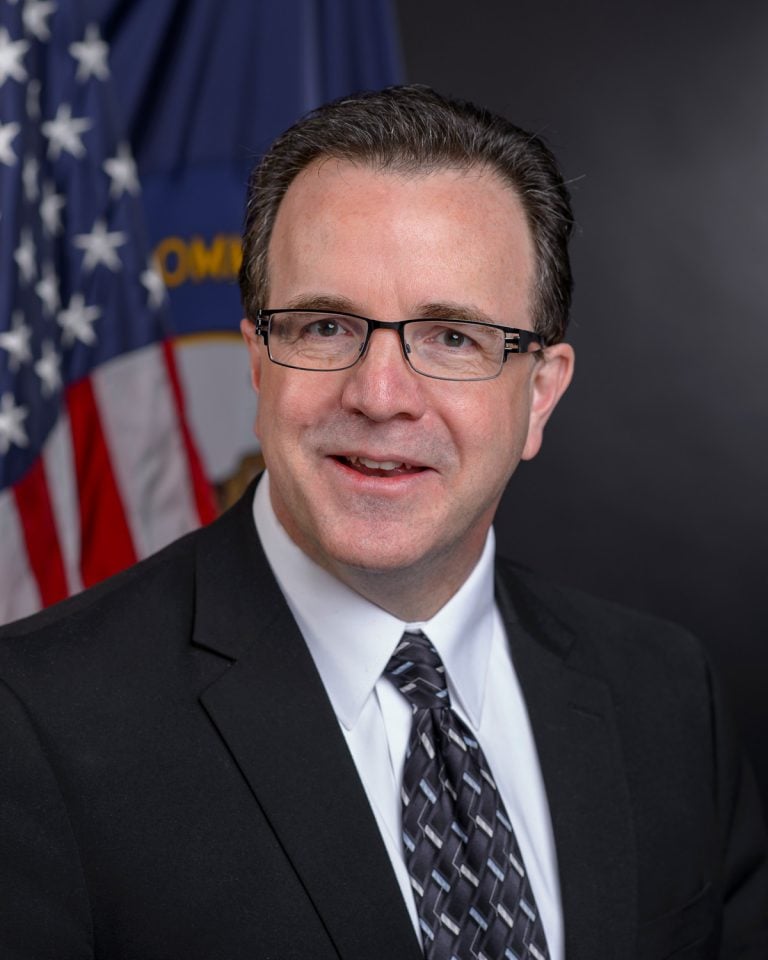I am so angry that I cannot be silent. On February 8, 2014, the “Courier-Journal” reported that in 2011, Lee County Circuit Court Judge Thomas Jones had revoked injured Gulf War veteran James Kidd’s probation, leading to him spending 3½ years in prison. He has now been paroled.
Kidd’s probation violation was returning to Kentucky to visit his gravely ill mother, in violation of the 5-year term of banishment from Kentucky that went along with his 10 years of probation for having sold a single narcotics pill.
In Kidd’s case, which was argued before the Kentucky Supreme Court on Thursday, February 12, Attorney-General Jack Conway should be ashamed of his defense of this illegal sentence and unfair revocation order. Conway’s actions in this case present a stark contrast to his refusal to defend or appeal Kentucky’s “Defense of Marriage Act” in Federal Court in 2014.
As the initiator of Fayette County’s Veteran’s Treatment Court, I asked every mentor and participant in Fayette County’s program to sign this letter with me, on behalf our fellow veterans. Each of us understands the seriousness of drug dealing (Kidd pleaded guilty in 2009 to having sold a single pill), and we are aware that not every veteran deserves a second chance if he commits a serious crime. However, when one of our own is unjustly aggrieved, we and American society all suffer. We know from our own experience that veterans offering their lives for our state and country in military combat service frequently changes us and our comrades, sometimes to our detriment that of our families.
Based upon my 41 years of representing veterans and thousands of others in Kentucky’s criminal courts, I offer several legal reasons to provide legal relief to Mr. Kidd.
First, HB 463 became law in 2011, to reduce the excessive, increasing numbers of inmates (a six-fold increase since 1975) and costs (reportedly about $22,000 per inmate per year) in operating out state’s prison system. We must recognize that all but a few hundred of our 20,000+ inmates will return to society, untrained and un-rehabilitated (more than 70 percent committed crimes that are drug or alcohol related), in “revolving door” fashion. They will be “criminally trained” from spending years in prison talking with other criminals, rather than prepared for re-entry into society. The savings from the reforms provided for in HB 463 are designed to be steered back into drug and alcohol treatment.
Second, it is my reading of the amended probation revocation statute, KRS 439.3106(1), that Lee County Circuit Judge Jones erred in failing to make the required findings of fact (for appellate review) that Kidd “poses a significant threat to prior victims or the community, and cannot be managed in the community.”
He also failed to analyze or determine whether lesser, graduated sanctions than imprisonment had been considered or why they might have been rejected in Kidd’s case. Kidd committed no new crime; he simply returned to Kentucky to visit a terminally-ill relative, in violation of the illegally imposed term of banishment.
Unfortunately, a very high percentage of people serving sentences in jail and prison (more than 50 percent) are confined for probation and parole violations. In 2014, the Boyle County Jailer estimated that 75 percent of probationers will eventually be revoked, whether for a technical violation or for having committed a new crime. North Carolina recently changed its laws to provide for “quick dips” of 3 to 14 days in jail for minor probation and parole violations (such as Kidd’s), rather than revocation and incarceration in prison for the full sentence.
The first American Veteran’s Treatment Court in Buffalo, New York, provided me with statistics during my 2014 visit, showing that after 6 days of jail time, the lessons of punishment are lost to overwhelming sentiments of misery.
Most participants in Kentucky’s criminal justice system are aware that “banishment” (as was imposed on Mr. Kidd by Judge Jones) is not a legally permissible sentence. In 1965, Kentucky’s highest Court held that judges lack the power to impose “banishment” as part of a criminal sentence. “The Commonwealth concedes that it is beyond the power of a court to inflict banishment as an alternative to imprisonment.”) See, “Weigand v. Commonwealth of Kentucky”, 397 S.W.2d 780, 781 (Ky. 1965) (rehearing was denied in 1966).
Yet, some judges announce their unlicensed wishes from the bench in hopes that they can discourage defendants from coming back before the Court on new charges, rather than purposefully directing scarce resources towards protecting our state’s borders.
Sometimes, however, reasonable and extenuating circumstances do occur. If my Mother was dying and stated that it was her last wish to see her veteran son, I might risk violating my judge’s probation term of banishment too.
Most states reject banishment as unconstitutional “cruel and unusual punishment”, a violation of the Federal Constitutional right to travel — and bad public policy. As former U.K. Law School Dean (and author of Kentucky’s modern 1975 Criminal Code) Robert Lawson put it: “If we send all of our undesireables to Ohio and West Virginia, then they could also send all of their undesireables to Kentucky. How would that help?”

Jon Larson is a criminal defense lawyer and former Judge-Executive (2011 – 2014) of Fayette County.
Note: The following have also authorized Larson to state that they have signed and agree to the contents of the foregoing letter: Timothy Prewitt, Gerald Washburn, Eugene Young, Gene Huffman, Logan Nance, Charles Taylor, Jeff Stagg, James Griffin, Skipp Phillips, David Bentley, Pastor Dewayne Walker and Col. Howard McKenzie (retired).

















